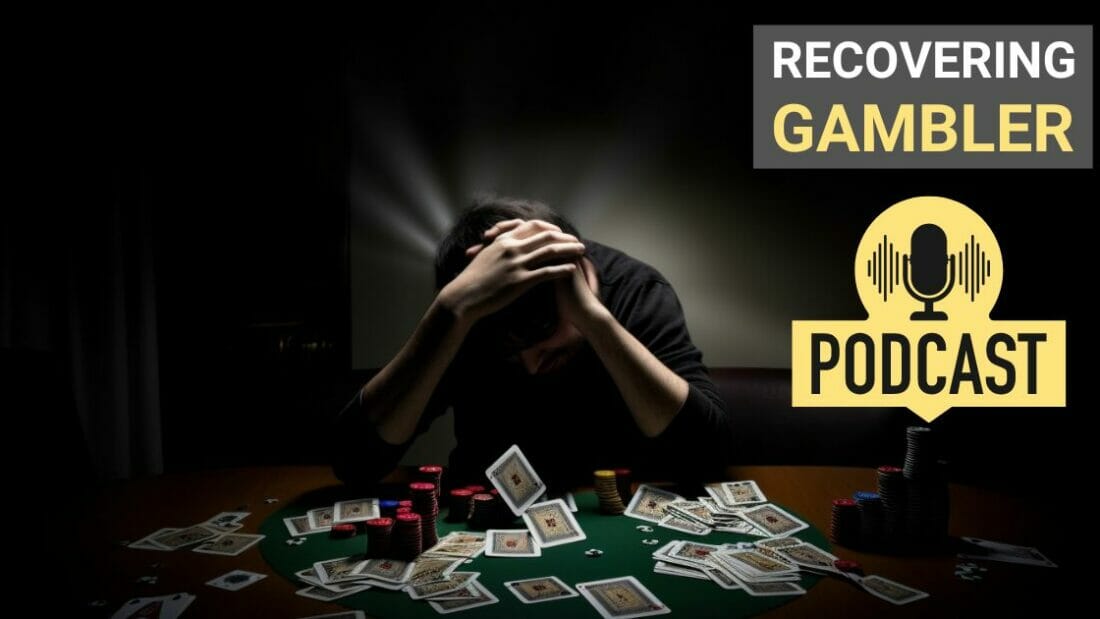Super Summary:
Adrian’s powerful story illuminates the stark reality of gambling addiction, underlining the need for industry regulation, intervention, and seeking help. His journey showcases the significance of open communication with loved ones and the positive outcome of breaking free from addiction. Adrian’s recovery stands as a guiding light for those grappling with gambling addiction, proving that a better life is attainable with dedication, proper support, and a commitment to change.
Top 5 Takeaways:
- Gambling addiction can severely impact mental health, relationships, and finances
- Industry regulation and intervention are crucial in preventing gambling addiction
- The importance of seeking help and exploring various recovery methods
- Open communication with loved ones is essential for support and understanding
- Overcoming gambling addiction can lead to significant positive changes in life
In this episode of the All in the Addicted Gamblers podcast, Brian and Jeff have a conversation with Adrian from Liverpool about his gambling addiction. Adrian’s last bet took place on 15th May 2020, and he decided to stop gambling not due to financial reasons but because of its effect on his mental health and personal life. His addiction impacted his concentration, temper, and relationships with his wife and daughter.
Early Beginnings and Escalation
Adrian started gambling during high school, playing games at arcades in his coastal hometown. He ponders whether this early exposure to gambling led to his addiction. As he grew older and started visiting pubs, his gambling intensified with higher stakes.
When Adrian moved to a new city with his wife, he felt isolated and turned to online gambling as a coping mechanism. He bet on various sports and even played roulette and blackjack late at night. Adrian confesses to betting on events he knew nothing about, such as Venezuelan under-23 football, quickly losing substantial sums of money.
Adrian attempted to quit gambling in February 2020, but the support from his GP was insufficient, as they failed to take his addiction seriously. After attending a few counseling sessions that didn’t address the root cause of his gambling, Adrian continued to gamble until he was emotionally and mentally drained.
Brian and Adrian discuss how casino operators never checked the source of Adrian’s money when he was gambling. Adrian reflects on this with a sense of astonishment, realizing there should have been some intervention or regulation.
Adrian admits that he would have probably found another operator if his account had been suspended, emphasizing the need for a system that flags problem gamblers across all platforms. Brian and Adrian agree that while gambling, they didn’t care about the consequences, focusing only on the excitement of betting.
Realizing the Problem and Taking Action
Adrian acknowledges that he knew he had an issue years before attempting to stop gambling. His addiction consumed every aspect of his life, making it difficult to seek help or prioritize his family and job. The turning point for Adrian occurred when he received an inheritance and gambled it away within days. It made him realize the severity of his condition and the need for change.
During their conversation, Brian and Adrian delve into a gambler’s mindset, including the constant calculation of potential winnings and losses and the desperation to recover lost money. Adrian reveals that he often missed crucial bill payments, such as his mortgage, to fund his gambling habit. It led to a cycle of debt and eventual eviction notices.
Adrian had to appear in court multiple times to save his house, admitting to the judge that his gambling caused his financial difficulties. Despite the judge’s leniency and agreements to halt the eviction, Adrian repeatedly found himself in the same situation over the years.
This part of the discussion highlights the severe consequences of gambling addiction on a person’s life and finances. The lack of intervention and regulation exacerbates the problem, making it essential for the individual and the industry to take responsibility and implement preventative measures.
Dark Moments and the Path to Recovery
Adrian discusses the dark moments he faced while struggling with his gambling addiction. On the surface, he appeared confident but was terrified internally. He even reached a point where he considered ending his life, thinking that his wife would be better off with the lump sum she’d receive after his death. Adrian attempted an overdose but, fortunately, survived.
His candidness about this challenging experience is likely to resonate with others going through similar struggles. Adrian shares that his suicide attempt was both a cry for help and a misguided attempt to provide for his wife. He now recognizes the selfishness in that decision, leaving his loved ones to deal with the aftermath.
After a three-month period of abstinence, Adrian relapsed, falling back into gambling during a day at the races with friends. He acknowledges the close relationship between his mental health and gambling addiction, explaining that stopping gambling has significantly improved his mental well-being.
Improved Home Life and Open Communication
Adrian’s home life has also improved since he stopped gambling. He and his wife have had open and honest conversations about the impact of his addiction on their relationship. Adrian’s in-laws initially struggled to understand his addiction but have since provided immense support to him.
Talking to loved ones about addiction can be nerve-wracking, but Adrian found that being honest and open with his wife’s parents was essential to his recovery process. Although they didn’t fully understand the nature of his addiction, they had noticed something was amiss and were able to provide support once the issue was out in the open.
The conversation continues, underlining the importance of discussing and acknowledging the challenges of addiction to help others facing similar experiences.
The Role of Social Media and Support
Adrian shares that Twitter played a significant role in his recovery journey, allowing him to connect with others facing similar issues. He found support from an individual named Alex and from his employer.
Adrian managed to get through the first seven days of quitting by setting a target and using an app called Gamban, which blocks all gambling sites. He also closed all his bank accounts and opened a new one with Monzo, which blocks gambling transactions.
Positive Changes and Moving Forward
Over time, Adrian experienced positive changes in his life, such as receiving two job promotions. He attributes these successes to his newfound focus and drive, which he gained after quitting gambling. Adrian acknowledges that he will never be able to gamble again due to the risk of falling back into addiction.
When asked about attending support groups or recovery meetings, Adrian tried Gamblers Anonymous but found it unhelpful. Instead, he relied on self-education and reading other people’s gambling stories to feel less alone in his struggle.
Adrian’s wife now controls their finances, a decision made jointly to ensure Adrian stays away from gambling. Adrian’s parents played a crucial role in helping him clear his £30,000 debt, allowing him to repay them without interest.
Adrian emphasizes the importance of breaking the cycle and routine of gambling. He took up running as a new hobby, which not only filled his time but also helped him lose weight and manage his anger issues.
Adrian’s story inspires others dealing with gambling addiction, showing that recovery is possible with the right gambling support and determination.
Conclusion
Adrian’s inspiring story sheds light on the harsh realities of gambling addiction, highlighting the importance of industry regulation, intervention, and seeking help. His journey demonstrates the value of open communication with loved ones and the positive impact of breaking the cycle of addiction. Adrian’s recovery serves as a beacon of hope for those struggling with gambling addiction, showing that a better life is within reach with determination, support, and a commitment to change.
 English
English Español
Español Français
Français Português
Português Svenska
Svenska

